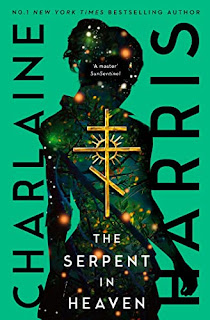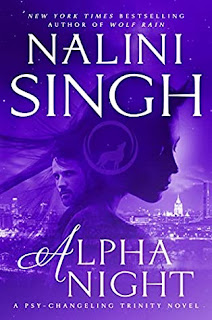 |
| The Vengeance by Emma Newman |
The Vengeance starts The Vampires of Dumas series, which I find both an intriguing and a slightly misleading series name. Vampires barely make an appearance, and it isn’t set in Dumas’ own time either. But it is inspired by his novels set centuries before, in the era of musketeers and swashbuckling pirates.
The book starts as a pirate story. Morgaine is a daughter of a female pirate captain sailing in the Caribbean. She’s lived her entire life at sea and loves it, and knows nothing of her mother’s life back in France. But on her deathbed, her mother makes a confession that sends her reeling—and heading across the ocean to France.
Morgaine isn’t her daughter. The real mother has searched for her for twenty years and she needs Morgaine’s help. Fired up by her anger towards the fake mother, but also anger towards the person who ordered her death, she sails to France to rescue her mother and avenge the death of the woman she thought of as her mother.
She is wholly unprepared for the polite society. But so is the society unprepared for her. And she isn’t given a chance to find her land legs. People are after her, trying to kidnap her left and right. One of them succeeds. He claims to be her father, and tells her not to go after her mother. She doesn’t listen.
Joining her on her quest is a young woman, Lisette, whom Morgaine’s father has hired as her (much needed) governess. Together, they go to see and rescue Morgaine’s mother. But things aren’t at all like she had imagined. And it may turn out that the one person she needs revenge on is the one she wanted to connect with.
This was a good, complete story, and clearly a stand-alone. Either there are different characters in the next book, like often in Ms Newman’s series, or Morgaine’s next adventure will be something completely different. It wasn’t a long book though, and the pacing was a bit off.
Too much time was spent on the voyage to France, even though it didn’t affect the story in any way. And the book was closer to 70% mark before the women headed out to find Morgaine’s mother. That journey was mostly skipped, even though it had a great impact on the endgame. Perhaps the story wasn’t meant to conclude here originally, with maybe the second book about the events with Morgaine’s mother, which would explain the pacing.
Biggest sufferer was the relationship between Morgaine and Lisette, which happened sort of behind the scenes. One minute it didn’t exist and the next it was there. It was lovely that the women found each other, but if you’re reading this for a romance, heightened emotions and angst, that won’t be there.
The supernatural element was sidelined too. If there hadn’t been the series title revealing it, I wouldn’t have expected it when it emerged around 65% mark. It would’ve been an excellent plot twist. Now, I kept expecting it the entire book and was a little disappointed with how long it took. But we got an intriguing glimpse and I hope the follow-ups will dwell in the supernatural world more.
The ending was a bit hasty, and the reader is left with many questions about the other players who wanted to kidnap Morgaine, and what their agenda was. It was slightly too convenient as well, but it was done on Morgaine’s terms, and it was good. The writing was great and kept me engaged. I’d read more of this series, whether it’s about her or other characters.
I received a free copy from NetGalley in exchange for an honest review.



















